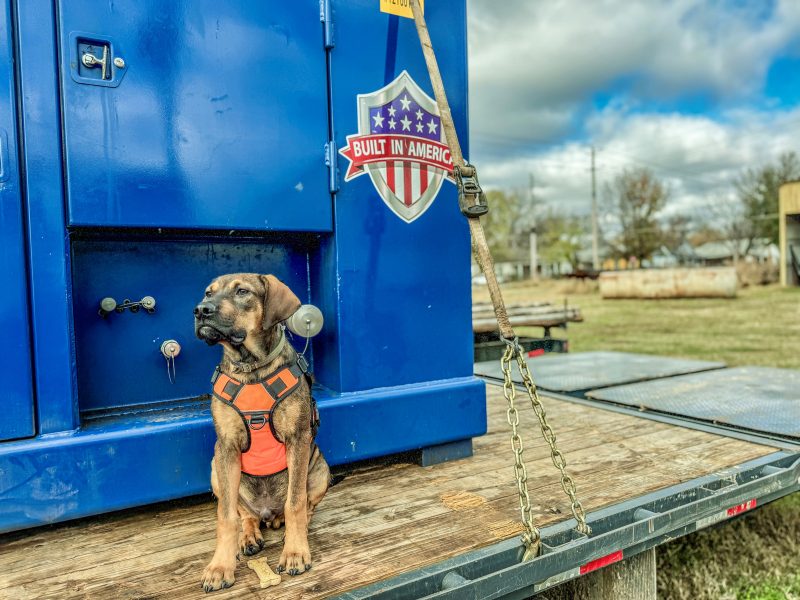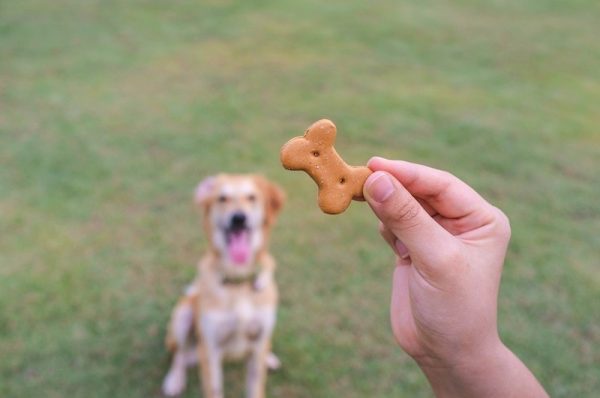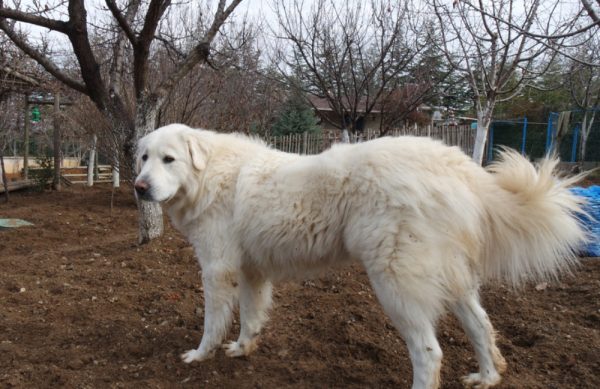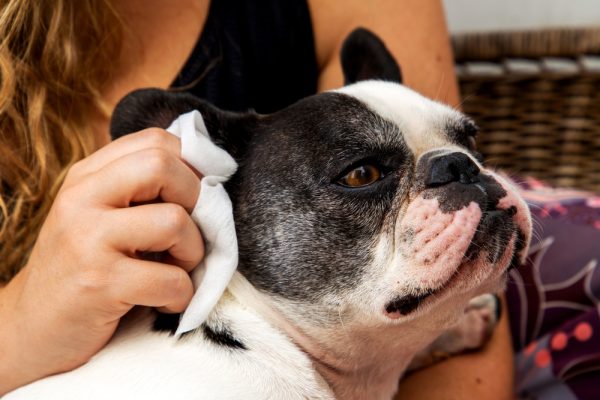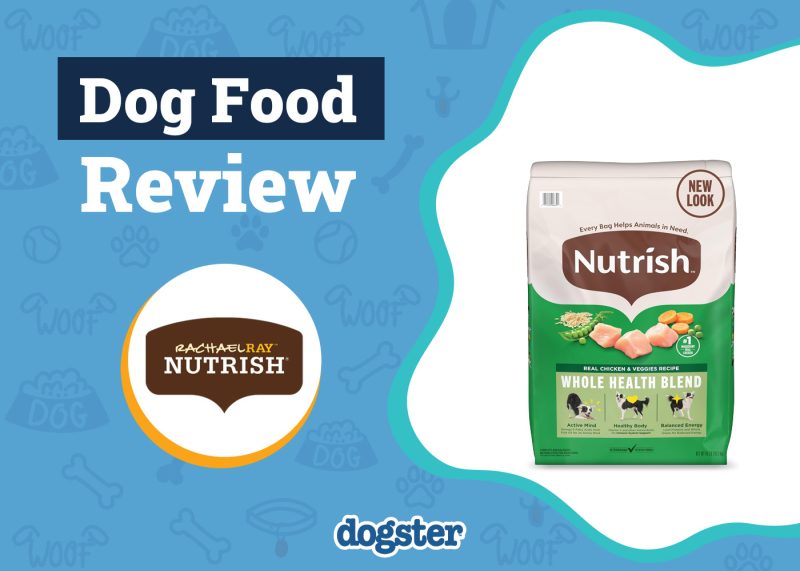In this article
View 3 More +Deciding whether a Labradoodle is the right breed for you and your family can be difficult. While these designer dogs have quickly become one of the most popular breeds in recent years, there are both pros and cons that you should consider before getting one.
This article will discuss some of the Labradoodle’s most significant benefits and drawbacks so that you can make an informed decision about bringing home this bouncy and loving breed.

What Exactly Is a Labradoodle?
The Labradoodle is a designer breed developed by crossing a Labrador Retriever and a Standard Poodle. While the precise origin of this breed is unclear, it is thought that the Labradoodle’s popularity began in Australia in 1989 when Wally Conron, the leader of the Royal Guide Dogs Association of Victoria, bred a litter to produce guide dogs believed to be suitable for people with allergies.1
Since then, Labradoodles have grown increasingly popular as family pets due to their intelligence and loyalty.


Top 8 Labradoodle Pros
1. They Are Highly Intelligent
With Poodles and Labrador Retrievers being two of the smartest breeds around, it’s no surprise that Labradoodles are incredibly smart too! This means they can quickly pick up new commands and tricks, making them great candidates for agility training.
2. They Are Friendly Towards Other Animals
Despite their large size, Labradoodles tend to get along well with other dogs and cats due to their loving nature. This makes them a great choice for people that already have pets, but are looking for another compatible dog to add to their home.
3. They Are Loyal Companions
Labradoodles form strong emotional bonds with their owners and need lots of attention to make them happy. This is why they make a great choice for service dogs, guide dogs, and therapy dogs.

4. They Don’t Shed Much
Poodle coat genetics mean that Labradoodles have a low-shedding coat, which benefits those who suffer from allergies or asthma. Although not truly hypoallergenic, they are pretty close and they were bred to be friendly to allergy sufferers.
5. They Require Minimal Grooming
Labradoodles do not require a massive amount of grooming because of their short curly coats. Regular brushing is necessary to prevent mats. But, their coats can also be cut into different styles to cut down on grooming.
6. They Are Great for Active Families
Labradoodles get along well with children and adults, making them a great choice for families. But Labradoodles enjoy an active lifestyle and need plenty of exercise and mental stimulation to remain healthy and happy.

7. They Have a Long Life Expectancy
The average lifespan of a Labradoodle is 12 to 15 years, which gives you plenty of time to form a strong bond with your pup! They are also relatively healthy, as long as they receive regular vet care and come from a reputable breeder who has performed the required health and genetic testing. Some of the more common health issues Labradoodles may suffer from include allergies, hip and elbow dysplasia, progressive retinal atrophy, and others.
8. They Come in Various Sizes
The size of the Labradoodle can vary depending on the size of their parents. So, you can choose from mini, medium, or standard sizes when selecting one as a pet.

Top 7 Potential Labradoodle Cons
1. They Require Lots of Exercise
Labradoodles need lots of daily physical activity to stay healthy and happy. Without enough exercise, they may become restless, bored, frustrated, or develop destructive behaviors. They are not suitable for people who have busy lifestyles and don’t have time to spend with them.
As with any breed, the Labradoodle can experience separation anxiety if left alone for too long. This can manifest in destructive behaviors such as chewing or barking.
2. Some Dogs Can Be Difficult to Housebreak
Training a Labradoodle like any other breed can take some patience and consistency, as they need guidance regarding housebreaking. However, they are intelligent and should pick up on things pretty quickly with the proper training methods using positive reinforcement.

3. May Require Professional Grooming
Depending on your pup’s coat, you may need to take them to your favorite groomer every few months for a trim and bath. This is especially true if you want them to maintain a certain hairstyle, which can cut down on grooming that you have to do at home.
4. Potentially High Vet Bills
Although they are a relatively healthy breed, some Labradoodles may be more prone to injuries than others due to their active lifestyle. This could mean higher vet bills. Labradoodles can also be prone to hip dysplasia, eye problems, and skin allergies. Every dog requires regular preventative veterinary care in order to be healthy and vet bills are a part of responsible dog ownership.
5. They Are Expensive to Buy
Labradoodles can cost up to $3,000 depending on the breeder, making them an expensive purchase compared to other breeds. This is especially true if you want a specific color or size that may not be as common.
6. Can Bark Too Much
The Labradoodle’s natural alertness means they may bark at noises or visitors more than desired. This makes them good alert dogs, but they may not be great for small spaces and apartments if they’re going to bark a lot.
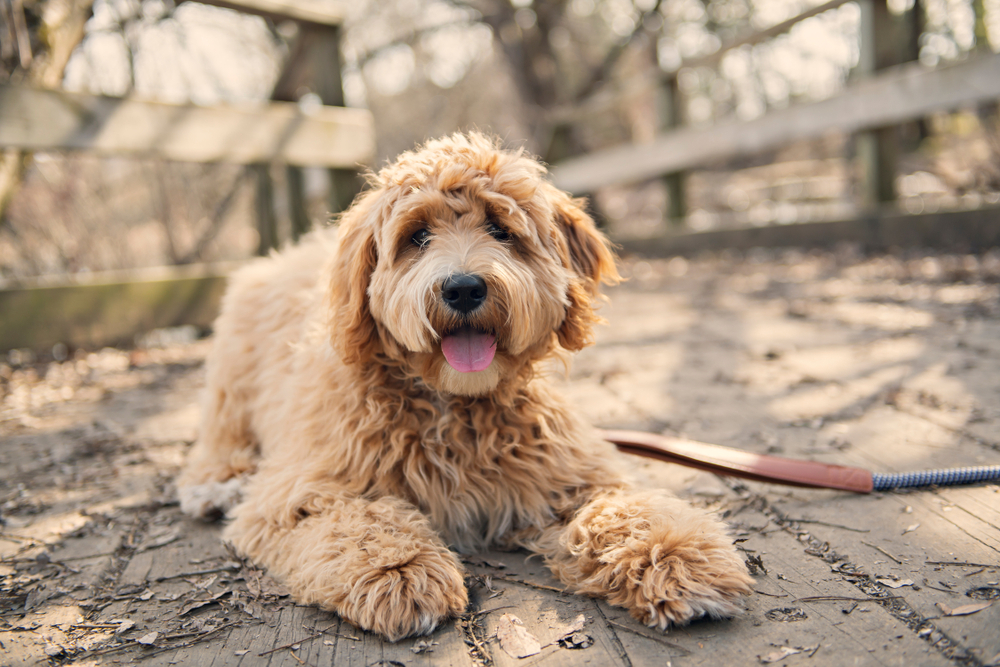
7. Not Suitable for Small Homes or Apartments
Speaking of small spaces, Labradoodles aren’t good for these spaces anyway. As active dogs, Labradoodles require plenty of room and space to run around to stay healthy and happy. Therefore, this is not an ideal breed for smaller homes or apartments due to the daily exercise they need.

Questions to Ask Yourself Before You Bring Home a Labradoodle
If after reading these pros and cons, you’re on the fence about whether a Labradoodle is right for you, here are some questions to ask yourself before bringing one home.
- Do I have the time to dedicate to exercising my Labradoodle?
- How much time and energy can I dedicate to training my Labradoodle?
- Can I provide plenty of mental stimulation for my pup?
- Am I prepared to deal with potentially destructive behaviors if not properly exercised?
- Can I afford the long-term care needs for a Labradoodle, such as regular vet visits and grooming appointments?
- Is there enough space in my house/apartment for a medium breed like a Labradoodle?
- Do I mind having an outgoing pup who loves meeting people and animals?
- What kinds of health problems are common in this breed and can I afford proper vet care?
- How much grooming will my pup need and how much time will I dedicate to brushing and bathing my Labradoodle?
- Is there anyone else in the family who can help care for this pup when I am unavailable?
- Am I prepared to put forth the effort needed to properly socialize my pup so they are comfortable around people and other animals?
- What will I do if my Labradoodle experiences health or behavioral problems?
- Are there any specific dietary requirements for this breed and can I afford a quality diet?
- Does the breeder have any health testing results on the puppy and their parents?
What Does the Perfect Home, Family, and Lifestyle Look Like for a Labradoodle?
An ideal home for a Labradoodle is one with plenty of open space to run and play and experienced dog owners with the time and energy to train, exercise, and socialize their pup. The family should also be prepared for potential vet bills associated with this breed and the need for professional grooming appointments.
A Labradoodle’s temperament should also be considered before bringing them home due to their outgoing personalities; they may require more attention than other breeds. Lastly, it’s important to ask yourself if you are willing to put forth the effort needed to ensure your pup lives a happy and healthy life.
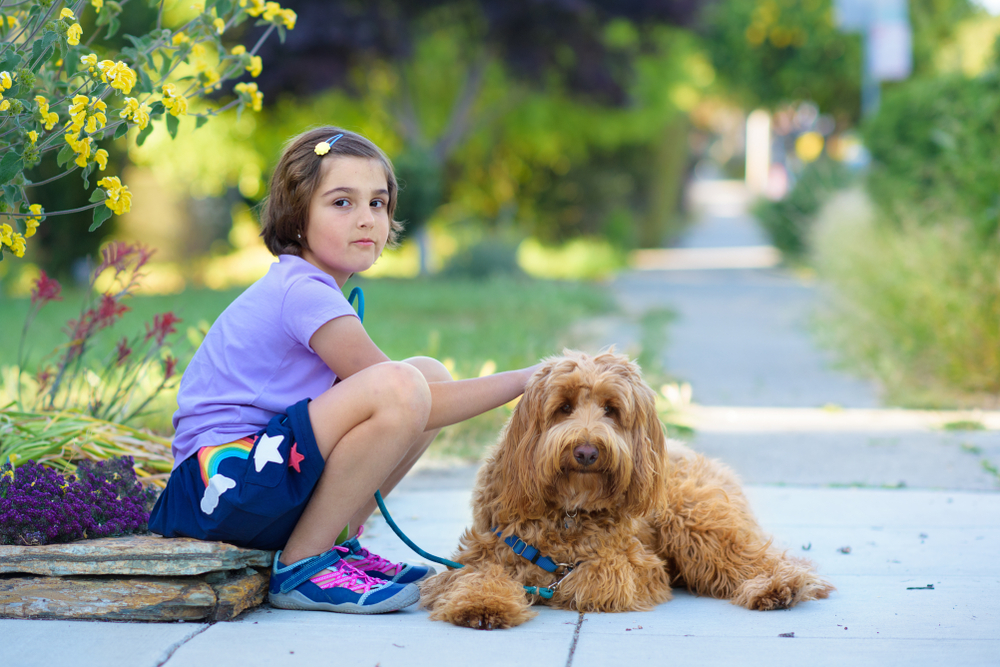

Other FAQs About Labradoodles
Are Labradoodles good family pets?
Yes, Labradoodles make excellent family pets. They are intelligent, friendly, and energetic—perfect for an active family lifestyle.
Are Labradoodles good service dogs?
Labradoodles are often used as service dogs due to their intelligence and loyalty. They can be trained to assist with various tasks and easily perform them.
How big do Labradoodles get?
Labradoodles come in various sizes depending on the parent dogs. The most common size is medium, usually weighing 30–50 pounds and standing 16–24 inches tall.
Are Labradoodles good for first-time owners?
Yes, Labradoodles make great companions for first-time dog owners. They are loyal, loving, intelligent, and eager to please, so naturally they respond well to training and socialization. Plus, they have an even temperament which makes them easy to handle in most cases.

Conclusion
Understanding the pros and cons of bringing home a Labradoodle is important for any potential pet parent, as it can help you decide whether this breed of dog is right for your lifestyle. With their intelligence, loyalty, and outgoing personality, Labradoodles make great family pets but require plenty of exercise, mental stimulation, and attention to stay happy and healthy.
So before committing to bringing one into your life, take the time to ask yourself these questions above to decide if a Labradoodle is the best fit for you!
Featured Image Credit: Josh Borup, Pixabay



